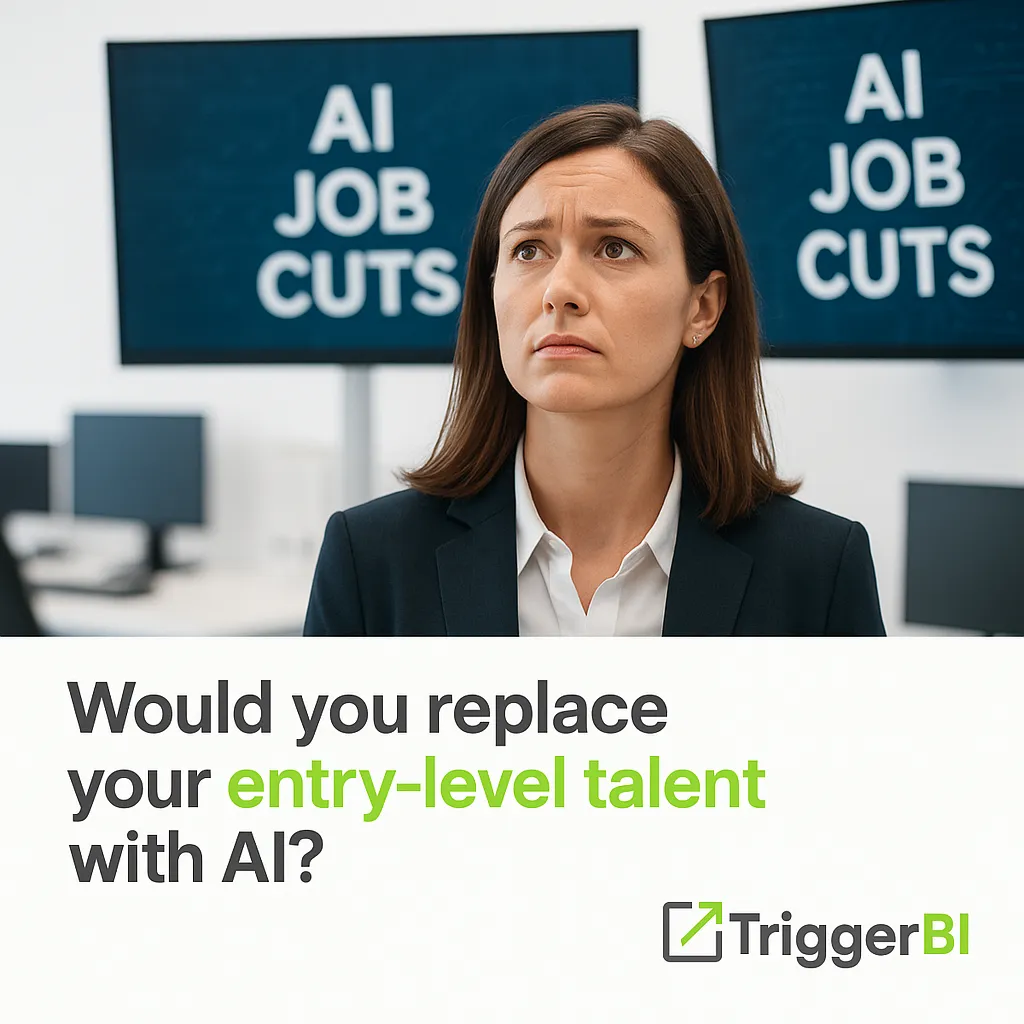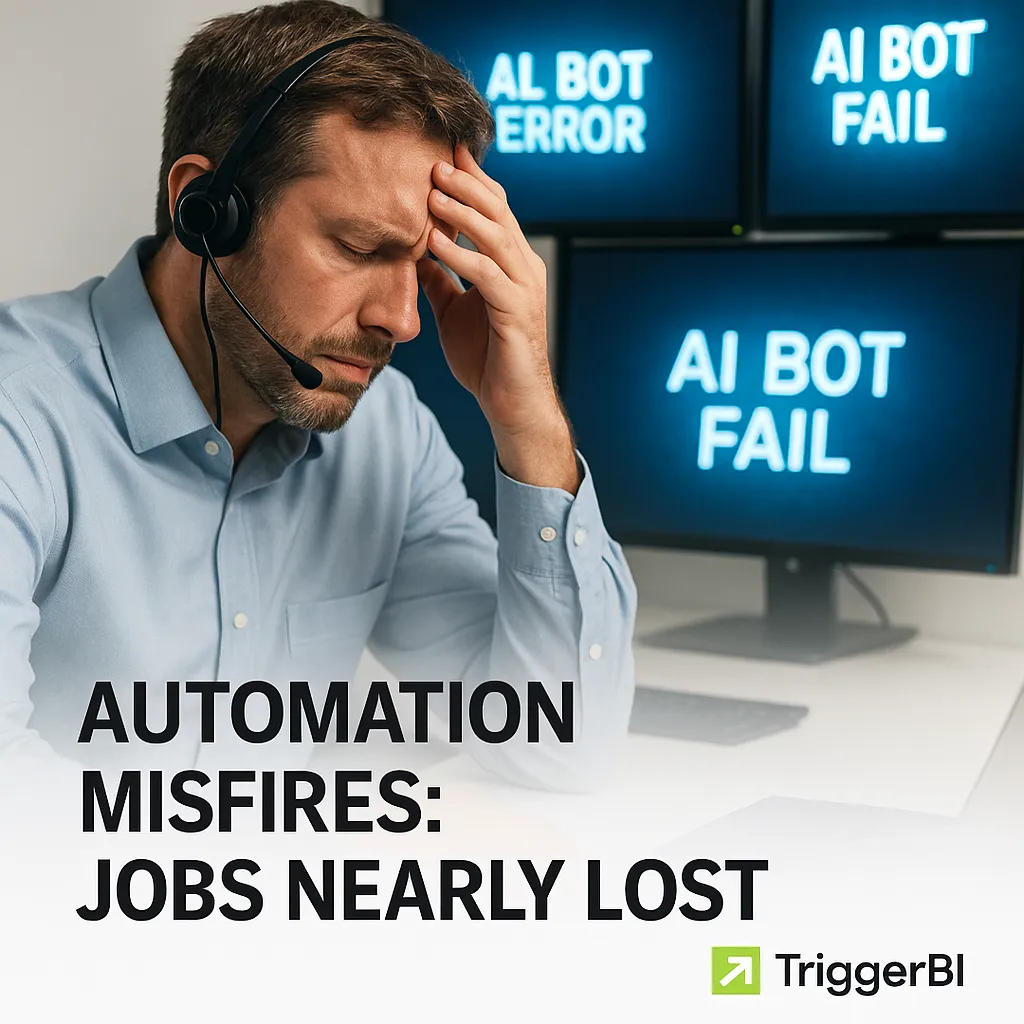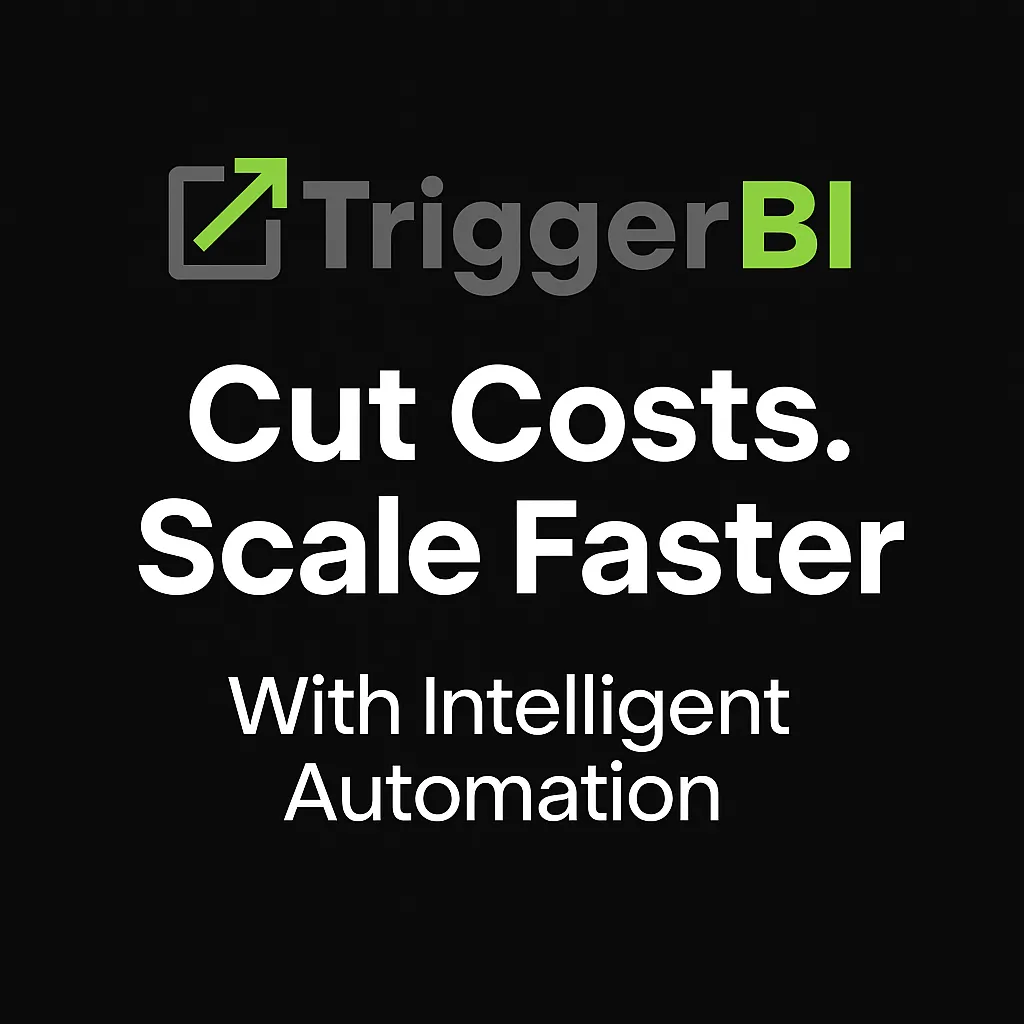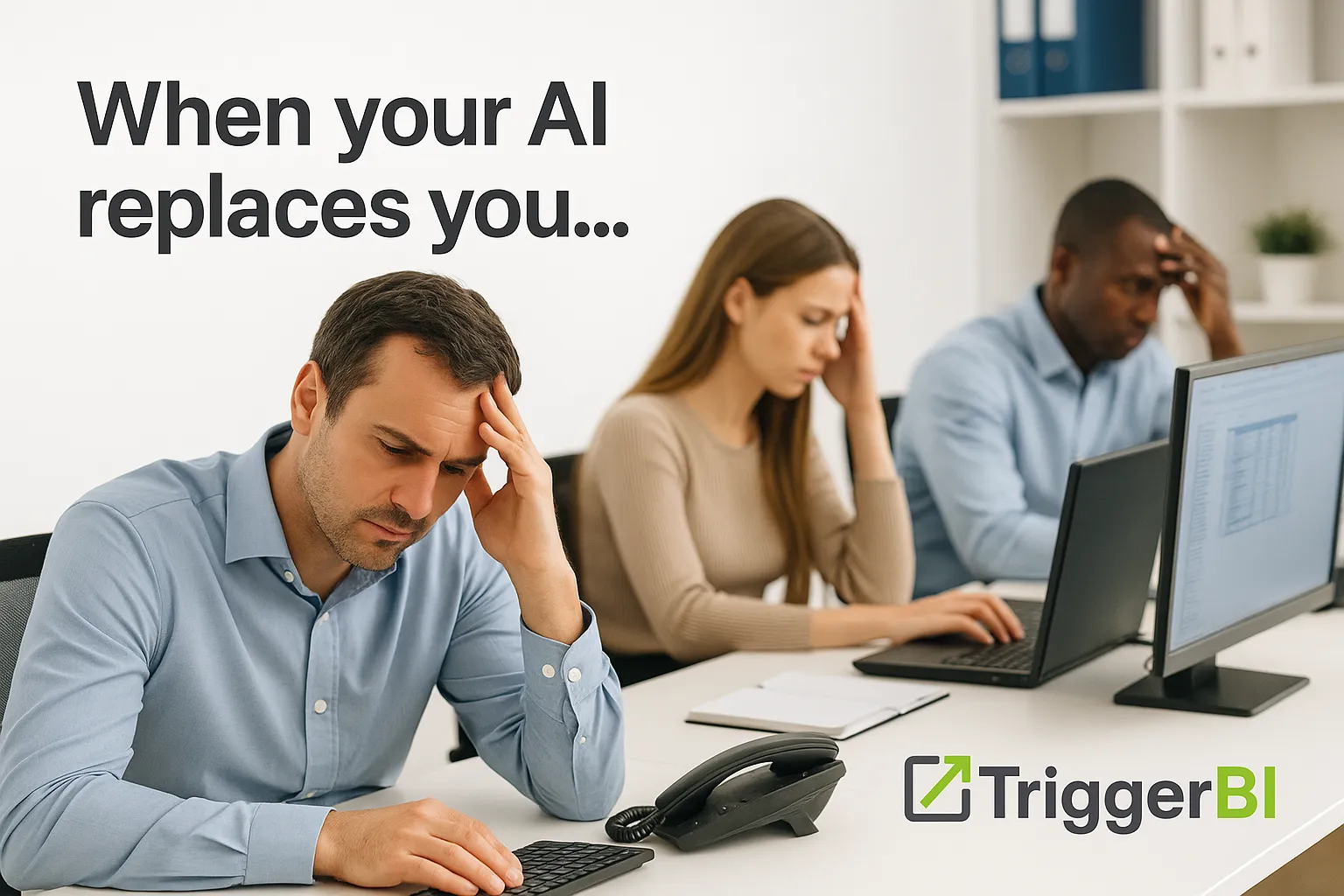AI's Quiet Threat: Is Your Job on the Line?

“AI isn’t a tool for your team—it’s your team’s replacement.”
This stark warning comes from Dario Amodei, CEO of Anthropic, a leading AI company. He has doubled down on his prediction that AI could eliminate up to 50% of entry-level white-collar jobs in the next one to five years. The roles at risk are not just in factories; they are in law firms, consulting, finance, and administration.
Amodei criticizes a disturbing trend: many corporate leaders are privately planning for these job cuts under the guise of "efficiency," rather than openly discussing augmentation and reskilling strategies. Our consulting services help companies navigate this transition ethically.
The Unseen Disruption
- Repetitive but variable tasks are highly vulnerable. Document review, data analysis, and report generation are already being automated at an unprecedented scale.
- A lack of transparency is a major concern. Workers and policymakers are not yet fully aware of the speed and scale of the looming disruption.
- Leaders have a choice. The path isn't set in stone. Businesses can choose to invest in reskilling and upskilling their workforce, shifting employees to roles that require uniquely human skills like strategy, creativity, and empathy.
Is it fair for AI vendors to drive adoption without accountability for potential job loss?
This raises a profound ethical question. As AI vendors push for widespread adoption, the responsibility for managing the societal impact cannot be ignored. A proactive and transparent dialogue about the future of work is not just necessary; it's urgent.


